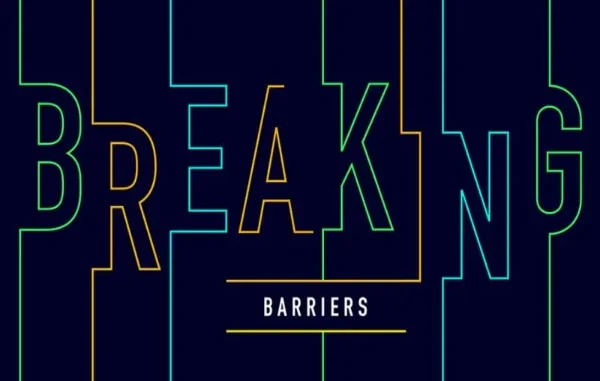
Introduction:
Throughout history, humanity has faced countless barriers—social, cultural, economic, and technological—that have hindered progress and stifled human potential. Yet, it is through the collective efforts of courageous individuals and communities that these barriers are broken down, paving the way for innovation, equality, and societal advancement. In this article, we explore the significance of breaking barriers, highlighting its transformative impact on individuals, societies, and the world at large.
Empowerment Through Breaking Barriers:
Breaking barriers empowers individuals to defy limitations and achieve their fullest potential. Whether it’s challenging societal norms, overcoming personal obstacles, or defying expectations, breaking barriers fosters a sense of empowerment and agency. By transcending boundaries and expanding horizons, individuals gain newfound confidence and resilience, propelling them toward greater personal and professional fulfillment.
Promoting Equality and Social Justice:
Many barriers are rooted in systemic inequalities and injustices that perpetuate discrimination and marginalization. Breaking these barriers is essential for promoting equality, justice, and human rights for all. From the civil rights movement to the fight for gender equality, history is replete with examples of individuals and communities coming together to dismantle oppressive systems and create a more inclusive and just society.Fostering Innovation and Progress:
Barriers often stifle innovation by limiting access to resources, opportunities, and diverse perspectives. Breaking down these barriers unleashes creativity, ingenuity, and innovation, driving progress in fields ranging from science and technology to arts and culture. By fostering diversity and inclusion, breaking barriers cultivates a fertile ground for new ideas, discoveries, and advancements that benefit society as a whole.
Building Bridges and Cultivating Understanding:
Barriers often create divisions and misunderstandings between individuals and communities. Breaking these barriers fosters empathy, compassion, and understanding across diverse backgrounds and perspectives. By building bridges of communication and collaboration, individuals can transcend cultural, linguistic, and ideological differences, fostering mutual respect and solidarity.
The importance of breaking barriers cannot be overstated. By empowering individuals, promoting equality, fostering innovation, and building bridges of understanding, breaking barriers unleashes human potential and fosters progress in all aspects of life. As we confront the myriad challenges facing our world today—from climate change and poverty to inequality and injustice—let us draw inspiration from those who have dared to challenge the status quo and break down barriers, and let us commit ourselves to continuing this vital work for a better, more inclusive, and equitable future for all.
The Pros and Cons of Breaking Barriers: Navigating Progress and Challenges
Breaking barriers is a fundamental aspect of human advancement, facilitating progress, innovation, and social change. However, while the act of breaking barriers holds immense potential for positive transformation, it also presents challenges and complexities that must be carefully navigated. In this article, we explore the advantages and disadvantages of breaking barriers, examining both its empowering benefits and the obstacles it may entail.
Advantages of Breaking Barriers:
- Promotion of Equality: Breaking barriers dismantles systemic inequalities and fosters a more equitable society. By challenging discriminatory practices and policies, individuals and communities can advocate for justice and equal rights for all, regardless of race, gender, religion, or socioeconomic status.
- Encouragement of Innovation: Breaking barriers fuels innovation by fostering diversity of thought and experience. When individuals from different backgrounds collaborate and share ideas, they bring fresh perspectives and insights to the table, leading to creative solutions and advancements in various fields.
- Empowerment of Marginalized Groups: Breaking barriers empowers marginalized groups to assert their rights and claim their place in society. By challenging stereotypes and overcoming obstacles, marginalized individuals can reclaim their agency and advocate for change, leading to greater representation and inclusion.
- Expansion of Opportunities: Breaking barriers expands opportunities for individuals to pursue their aspirations and goals. Whether it’s access to education, employment, or political participation, dismantling barriers enables people to realize their full potential and contribute to society in meaningful ways.
Disadvantages of Breaking Barriers:
Resistance and Backlash: Breaking barriers often meets with resistance from those invested in maintaining the status quo. Individuals and institutions may push back against efforts to challenge entrenched norms and power structures, leading to conflict and backlash against progress.
Unforeseen Consequences: While breaking barriers may achieve positive outcomes, pwvip4d can also have unintended consequences. Changes in social dynamics or power structures may disrupt existing systems and lead to unforeseen challenges or conflicts that require careful management and mitigation.
Fragmentation and Divisions: Breaking barriers can sometimes lead to fragmentation and divisions within society. While efforts to promote diversity and inclusion are essential, they may also inadvertently reinforce identity politics or exacerbate tensions between different groups, leading to polarization and social fragmentation.
Institutional Inertia: Breaking barriers requires more than just individual efforts—it necessitates systemic change and institutional reform. However, entrenched systems and structures may resist change, perpetuating barriers and impeding progress despite efforts to dismantle them.
Conclusion:
In conclusion, breaking barriers is a complex and multifaceted process that holds both advantages and disadvantages. While it promotes equality, innovation, and empowerment, it also entails challenges such as resistance, unforeseen consequences, social divisions, and institutional inertia. Despite these challenges, the imperative to break barriers remains essential for fostering progress, justice, and inclusion in society. By acknowledging the pros and cons of breaking barriers, we can navigate the complexities of social change with greater awareness and effectiveness, working towards a more equitable and inclusive world for all.

Leave a Reply